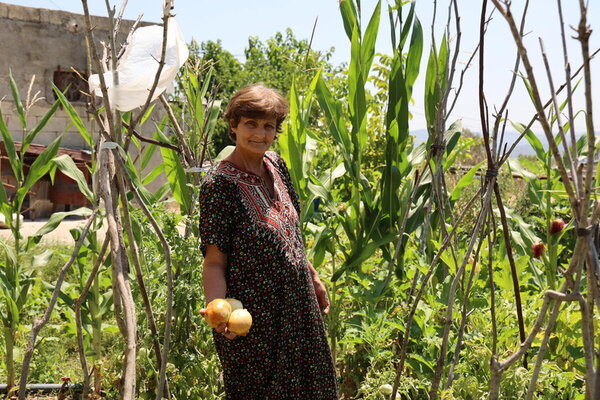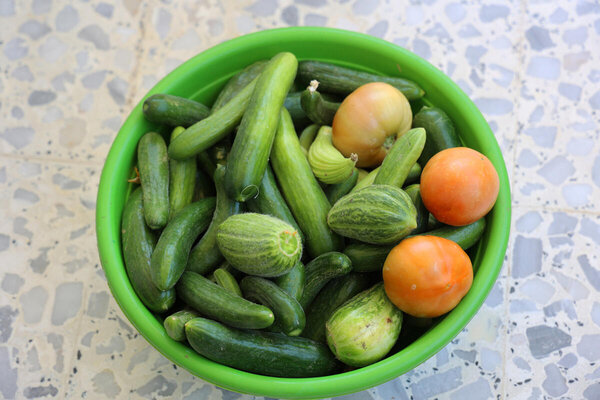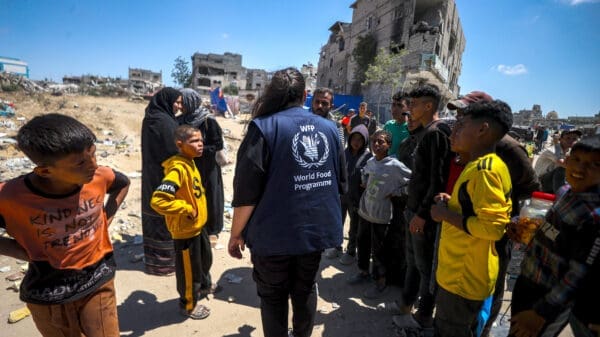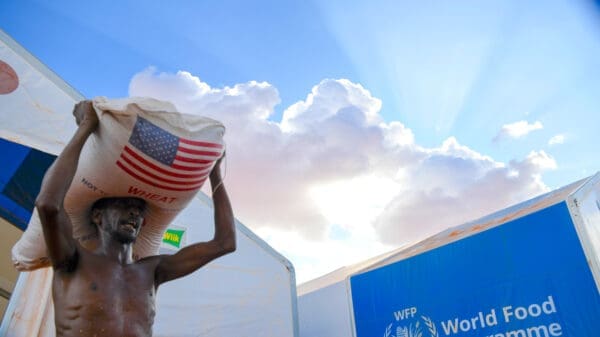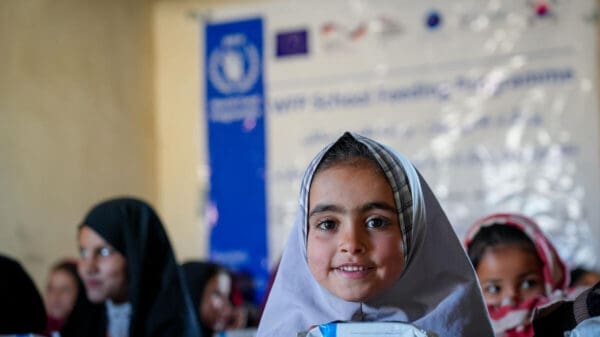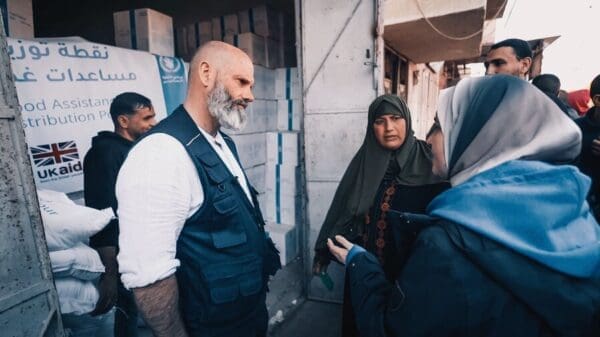Meet Abeer, Ghada, Heyam, Radha and Samira: Five Entrepreneurs Breaking the Glass Ceiling With Fresh Vegetables in Syria
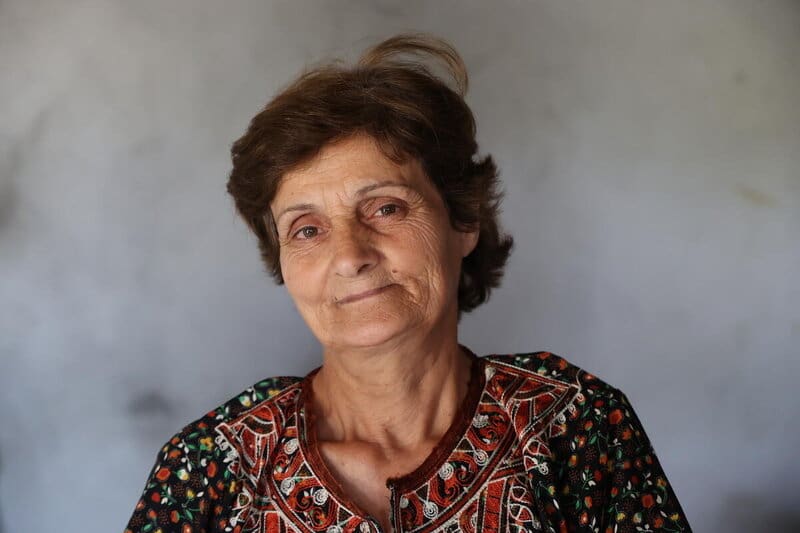
Ahead of International Equal Pay Day tomorrow, meet five women in Syria who have banded together to improve their incomes and provide for their families.
The most delicious food is usually the kind that is made by experienced hands. Vegetables that were picked from a garden that where they have grown for years. Fresh food cut on an old wooden chopping board and served on a table filled with family and friends.
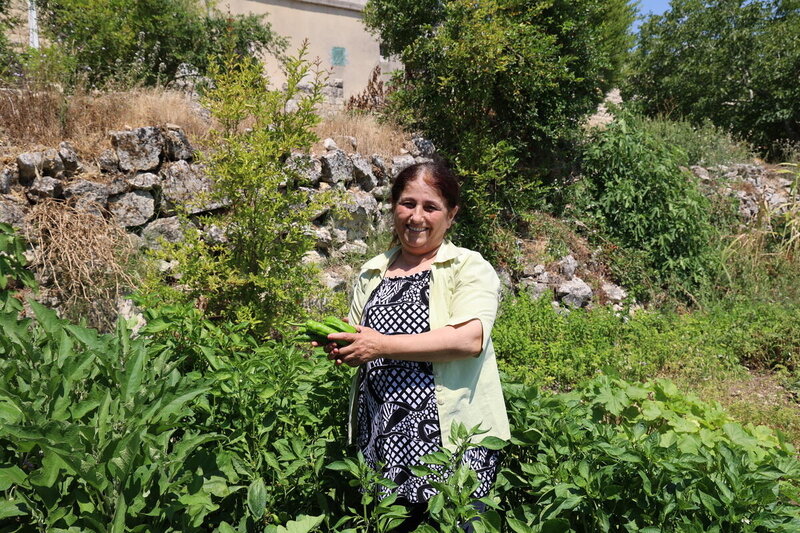
Ghada picks fresh crops from her backyard, to package and sell to her community.
After being friends, neighbors and farmers for years, five women in Tartous, Syria decided to come together and start their own business. After just a few months, Abeer, Ghada, Heyam, Radha and Samira are already harvesting, preparing and selling preserved foods made from vegetables they grow themselves. Their customers are members of their community, their dishes are whatever is in season and their recipes are the ones their mothers taught them.
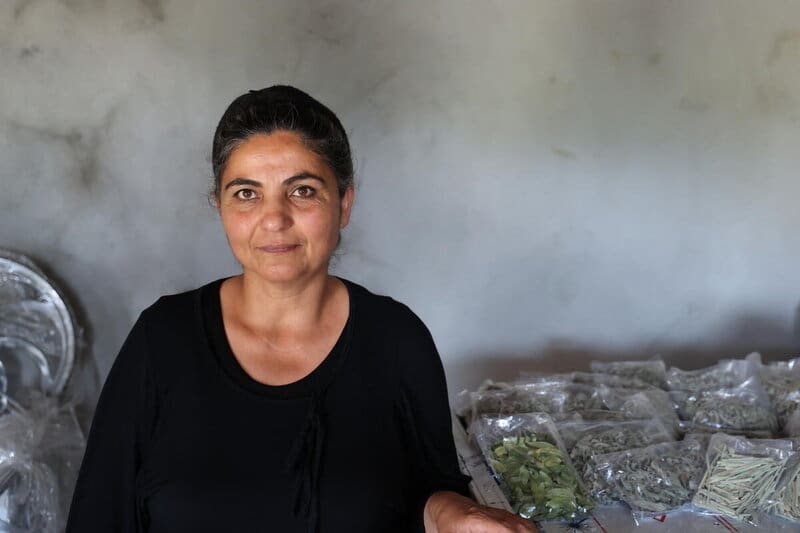
Abeer has been a farmer in Tartous her whole life. Her business is helping to transform food from her garden to tables throughout her community.
“I am obsessed with farming and like to feed people from what I produce in my garden,” says Abeer.
The U.N. World Food Programme introduced food processing units across Syria to support hungry and vulnerable families build businesses. After farming individually for years, these five women agreed to work together to establish one processing unit. Coming together meant they could receive the support they needed to start and grow their business, save time and improve the quantity and quality of their products.
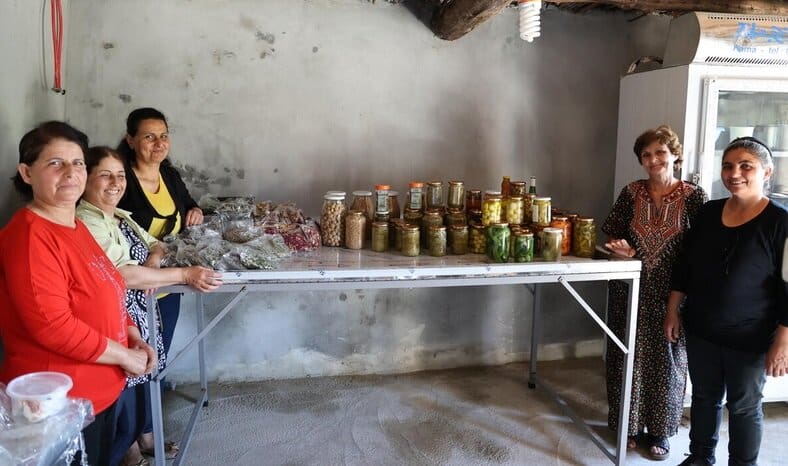
The women proudly show off some of their latest products.
“All of us used to work alone, which was time and effort consuming,” explains Ghada. “But after we all joined in this project, we managed to have more time to look after our families and at the same time we socialize together. We enjoy working together and have better income for all of us.”
The U.N. World Food Programme provides groups of families across Syria with the skills and tools that they need to launch their businesses. People receive basic equipment and training in food production, food safety, financial management and marketing. Each group also receives electronic vouchers to buy food from local stores for the first six months of the project. This helps them to cover their own needs until their project becomes productive.

Radha is proud to be able to give back to her community.
The five women established the processing unit in Heyam’s house. The place smells of the wild herbs they use to flavor the food, and on the table the women have proudly placed some of their products. Pickled olives, cucumbers and capsicums are ready to be sold and can be eaten up to one year from now.
The group’s entire business model is based on word of mouth, Radha explains: “We could bring our products to the markets in Tartous city, which theoretically will increase demand. But this means we will have to add the cost of transportation.” By selling locally, they can keep their costs low while giving their business some time to grow.
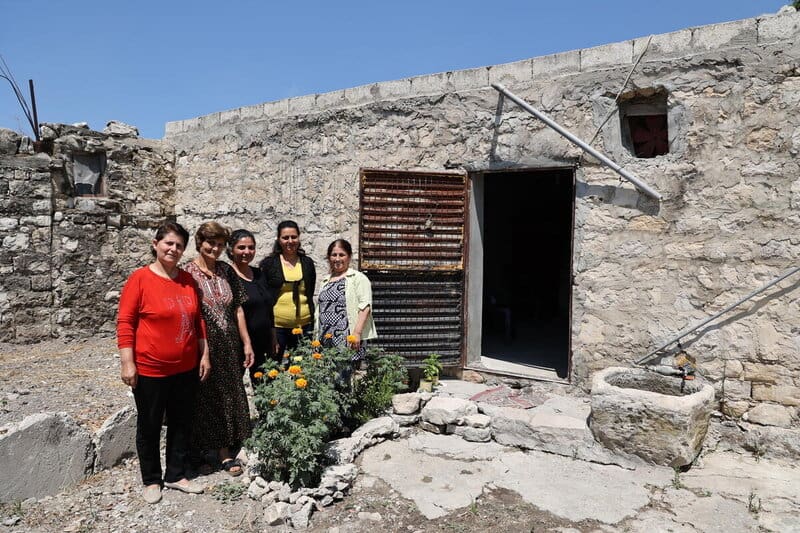
The women gather at Heyam’s house to plan and build their business.
All five women admit there are challenges when trying to bring food from their own farms to people’s tables. Syria’s economy is rapidly deteriorating after a decade of conflict. Food and fuel prices have soared and daily life is now harder than ever for the majority of families.
“We were very determined not to let anything prevent us from producing food and generating an income,” adds Rahda. “Our ancestors didn’t have gas to produce food, or electricity to preserve it. We learned from them these methods and now it has helped us.”
The group have started to earn a small income, which they use to support their children, pay for medical expenses and meet other basic needs.
When asked about what makes their food so delicious, Radha replies: “We are the difference. We are mothers, not machines. When we prepare the food, we think of our children eating it and we select each item with love and care. This is our secret.”
This story originally appeared on WFP’s Stories and was written by Jessica Lawson and Hussam Al Saleh.
